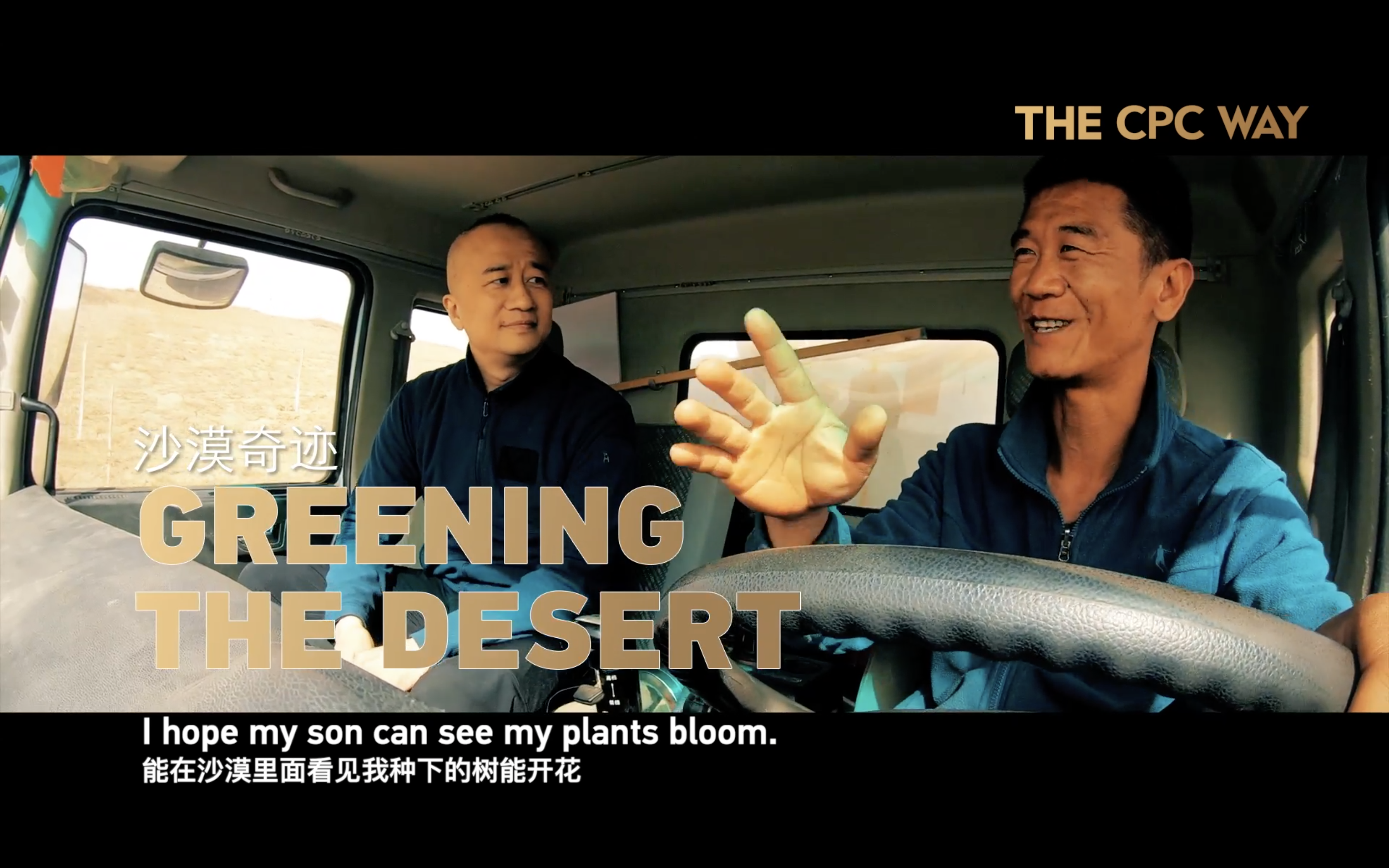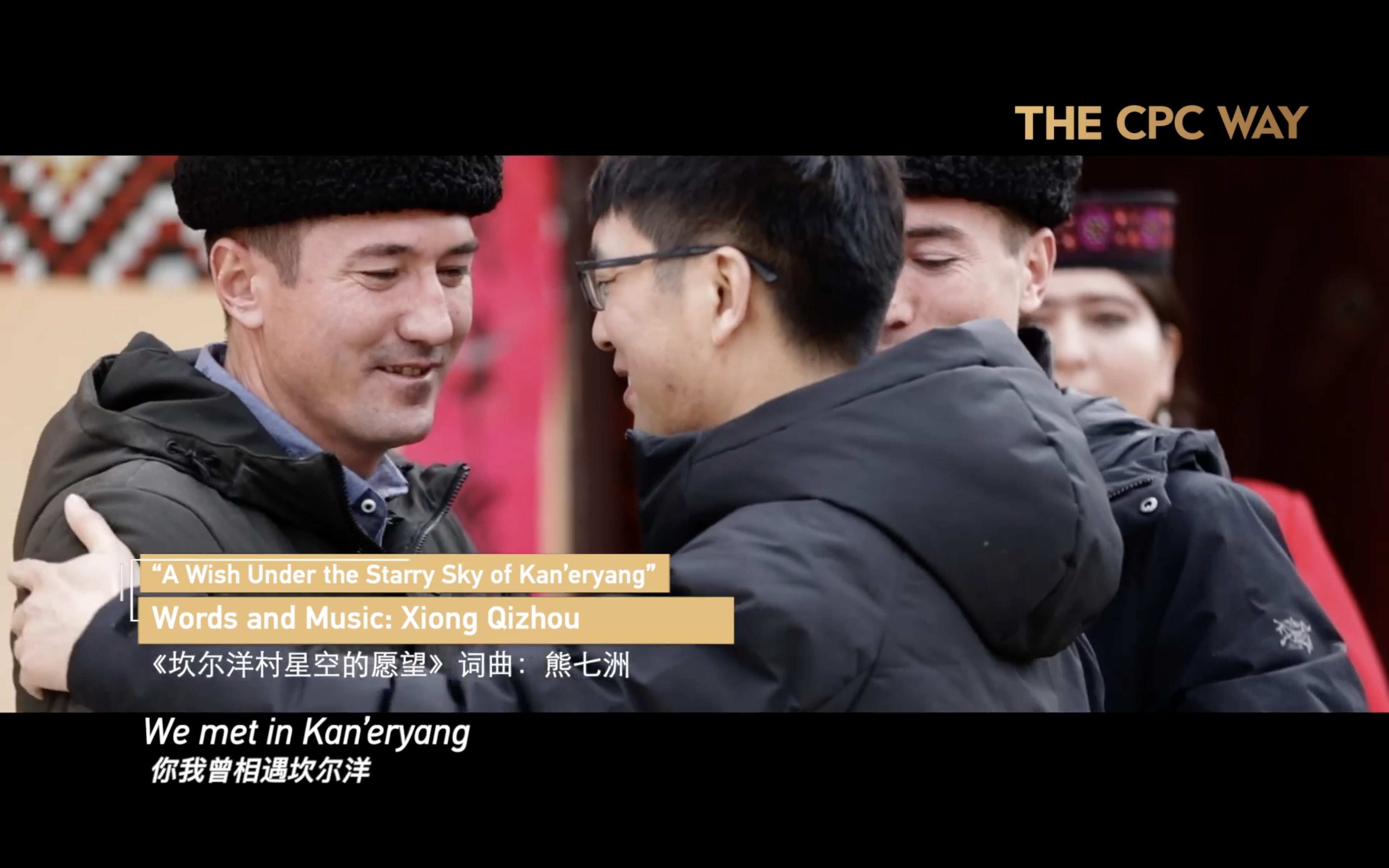
A poster for CGTN's six-episode documentary "The CPC Way." /CGTN
A poster for CGTN's six-episode documentary "The CPC Way." /CGTN
To understand China today, one must know about the Communist Party of China, the CPC. As the Party marks its centennial in 2021, it's an occasion to review its path and forecast its future.
The image of the CPC is widely divided on global media. Some have praised its resolve in strict governance; others have criticized the CPC as being authoritarian. There aren't many documentaries about the CPC outside China. So CGTN decided to make the six-episode documentary.

Guo Xi (R) talks about his wish to CGTN's Han Bin, chief director of "The CPC Way." Guo is a third-generation forest ranger at Babusha, a large sand dune on the southern edge of the Tengger Desert in northwest China's Ningxia Hui Autonomous Region. /CGTN
Guo Xi (R) talks about his wish to CGTN's Han Bin, chief director of "The CPC Way." Guo is a third-generation forest ranger at Babusha, a large sand dune on the southern edge of the Tengger Desert in northwest China's Ningxia Hui Autonomous Region. /CGTN
One of the biggest challenges is how to present the CPC within the global discourse. There are many negative stereotypes about the CPC around the world. The ideological confrontation poses a challenge to any director. That's why a project like this matters so much.
"The CPC Way" is not an argument about which system is better but an overall depiction of the CPC's theories and practices. Some Chinese experts point out that, unlike Western political parties, the CPC is "internally pluralistic."
Where Western critics say it's a "one-party autocracy," Chinese experts contend it is "pluralism in one body." It's a circle, with the CPC at its core, representing the greatest common interests of the whole society.

On the last day of his three-year term as the first Party secretary of Kan'eryang Village, Taxkorgan Tajik Autonomous County in northwest China's Xinjiang Uygur Autonomous Region, Xiong Qizhou (R), bids farewell to the villagers. Xiong was assigned to Kan'eryang in 2018 as part of the CPC's nationwide poverty alleviation program. /CGTN
On the last day of his three-year term as the first Party secretary of Kan'eryang Village, Taxkorgan Tajik Autonomous County in northwest China's Xinjiang Uygur Autonomous Region, Xiong Qizhou (R), bids farewell to the villagers. Xiong was assigned to Kan'eryang in 2018 as part of the CPC's nationwide poverty alleviation program. /CGTN
The series brings the practical to the theoretical. We want it to engage the viewers, not lecture them. The six episodes are six journeys exploring the CPC's hard-won victories and the prices paid for the achievements: How the Party began, whom it serves and how, what's behind the policies, and where it is heading.
To get the answers, for four months, we profiled nearly 100 people from different walks of life across the country, ranging from workers, farmers, soldiers and CPC officials to scientists, foreigners, and non-Party members.

The "Seven Fairies," seven girls of Dong ethnic group from Gaibao Village in Liping County, southwest China's Guizhou Province, use livestreaming to make the village a tourist destination. /CGTN
The "Seven Fairies," seven girls of Dong ethnic group from Gaibao Village in Liping County, southwest China's Guizhou Province, use livestreaming to make the village a tourist destination. /CGTN
As always, I couldn't have done it without a solid team, both in the field and behind the scenes. We are grateful for this latest chance to tell another chapter in the China story.

